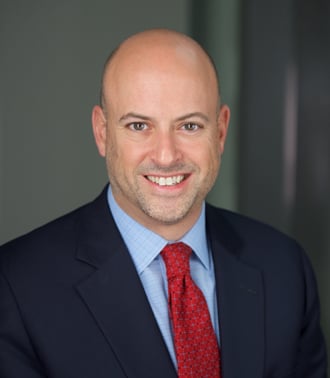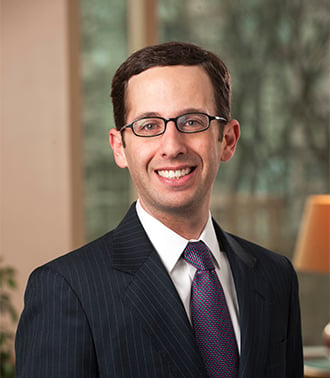Lit Alerts—September 2017
In This Issue:
- Right of Publicity: Northern District of California Dismisses Lawsuit Over NFL Players' Likenesses in Sports Video Game
- Inadvertent Production: Federal District Court Finds Waiver of Attorney-Client Privilege Despite Clawback Agreement
- Attorney's Fees: Seventh Circuit Disapproves Increase in Fees Award Based on Case's Novelty or Complexity
Right of Publicity: Northern District of California Dismisses Lawsuit Over NFL Players' Likenesses in Sports Video Game
A district court in the Northern District of California granted partial summary judgment to a video game manufacturer in a suit alleging that it violated a California statute prohibiting the unauthorized use of a person's name, voice, signature, photograph, or likeness for the purposes of advertising.
Former NFL players brought the case as a putative class action against Electronic Arts (EA), alleging EA had misappropriated their likenesses for inclusion in the Madden NFL series of video games in violation of California Civil Code § 3344 (§ 3344). In addition to their claims under § 3344, the former players also brought a claim based on California's common law right of privacy.
EA sought summary judgment on the plaintiffs' § 3344 claims on the ground that EA had not used the players' likenesses, as defined in § 3344. According to § 3344, "likeness" is defined as a visual image of a person other than a photograph. The plaintiffs argued that because the games included "avatars" of certain players that could be identified by contextual information such as team, position, and physical and biographical characteristics, EA had misappropriated their likenesses. The court ruled that the additional contextual information could not be taken into account when determining whether the "avatars" could be readily identified as specific NFL players, and therefore ruled that EA had not violated § 3344. The court also stated that the NFL players might have a credible common law right of privacy claim, which would not require the players to show that the "avatars" included in the games were "readily identifiable" as the former players solely based on visual images.
Inadvertent Production: Federal District Court Finds Waiver of Attorney-Client Privilege Despite Clawback Agreement
The court's decision in IRTH Solutions, LLC v. Windstream Communications LLC, No. 2:16-cv-00219 (S.D. Ohio Aug. 2, 2017), arose from a discovery dispute relating to the defendant's inadvertent production of forty-three privileged documents—first in January 2017 and again in March 2017. The parties had entered into a short clawback agreement, which included a provision that "[i]nadvertent production of privileged documents does not operate as a waiver of that privilege."
As a threshold matter, the court first confirmed that the forty-three documents at issue were in fact privileged, and that their disclosure was inadvertent. The court then considered the issue of waiver, looking for guidance from other circuits because the Sixth Circuit has not yet addressed how clawback agreements intersect with Federal Rule of Evidence 502(d). After discussing three approaches for assessing the validity of a clawback agreement against Rule 502(d), the court found two standards to be applicable: (1) inadvertent production of a document does not constitute a waiver where there is a protective order with a clawback provision, unless the document production process was completely reckless; and (2) requirements of Rule 502(b) can be superseded by a clawback agreement only to the extent such an agreement provides concrete directives regarding each prong of Rule 502(b).
The court did not differentiate between the two approaches because "when taking into account [the defendant's] careless privilege review, coupled with the brief and perfunctory clawback agreement, following either approach leads to the same result: Defendant has waived the privilege." The court ultimately held that because defense counsel did not take reasonable steps to prevent disclosure, the privilege protections were waived. The court did note, however, that this was not a subject-matter waiver of privilege and that the waiver thus applied only to the forty-three documents at issue.
Attorney's Fees: Seventh Circuit Disapproves Increase in Fees Award Based on Case's Novelty or Complexity
The Seventh Circuit recently cut a $4.8 million attorney's fees award in a class action nearly in half, finding no justification for an award significantly higher than the $2.7 million actually billed and the $900,000 awarded to the class.
The case, In Re: Sears, Roebuck and Co Front-Loading Washer Products Liability Litigation, was litigated for nearly a decade and appealed up to the Seventh Circuit and the US Supreme Court before settling in 2015. Although the amount to be paid to the class has not yet been finalized, the parties estimated that class members would receive approximately $900,000. Class counsel billed a total of $2,726,191 on the matter, but requested a much heftier $6 million in fees, citing the appeals and lengthy litigation. Sears and Whirlpool argued that the award should be less than the amount paid to the class, in this case, $900,000.
A magistrate judge in the Northern District of Illinois awarded class counsel $4,770,834, or 1.75 times the amount actually billed. The extra fees award, according to the magistrate, compensated for the novelty and complexity of the case and the benefit to the public. Sears and Whirlpool appealed the fees award in September 2016.
Writing for a unanimous Seventh Circuit panel, Judge Posner wrote that class counsel failed to prove that the attorney's fees award should exceed the amount actually expended, which was already three times the damages awarded to the class. The court questioned the magistrate's methodology for calculating the fees award, noting that novelty and complexity require no additional multiplier because those factors influence the base fee—"the more novel and complex a case, the more hours will be billed and the higher the hourly billing rates will be." The court also reaffirmed that although normally a fees award should not exceed what the class has been awarded, where "extensive time and effort" have been invested in a "difficult case against a powerful corporation," parties may be entitled to a fees award in excess of the benefits to the class.
© 2017 Arnold & Porter Kaye Scholer LLP. This Law & Industry Update is intended to be a general summary of the law and does not constitute legal advice. You should consult with counsel to determine applicable legal requirements in a specific fact situation.




